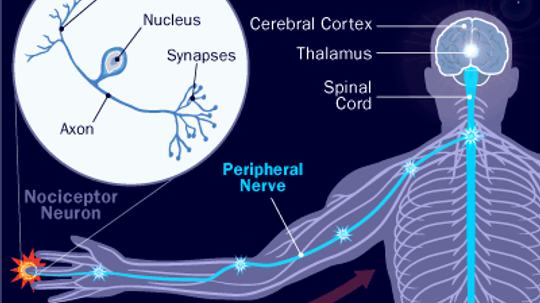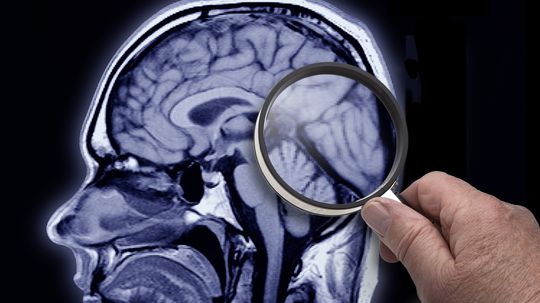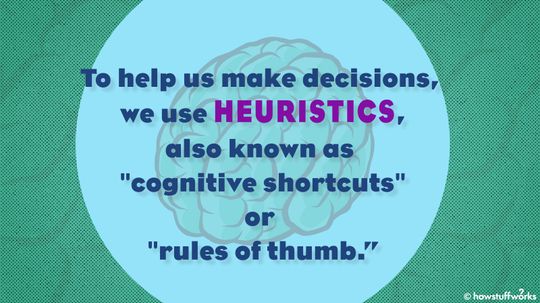The Human Brain
What are dreams really made of? Are humans the smartest animal? What causes schizophrenia? Travel inside the mind and find out how the human brain works.
Learn More / Page 4
You've just touched a hot stove -- and probably felt an immediate sharp pain, then a dull ache. How do we sense pain, and why does it eventually go away?
That man dressed in animal skins and running around Jerusalem trying to baptize people isn't alone. Tourists in Jerusalem sometimes suffer from a strange conviction that they are Biblical figures. Are they mentally ill or is there more to it?
Sleepwalking is an intriguing phenomenon. How can a person be unconscious but still coordinate his or her limbs? And how do we know when we're really awake?
Advertisement
One of the top-prescribed sleeping pills may cause you to shuffle out of bed and sleepwalk to the fridge. Could Ambien be making you sleepy and hungry?
Memory is your only personal record of the past and of who you are as an individual. What if you woke up one morning and your memory was gone?
You might think that not being able to feel pain would be a blessing. No tears, no painkillers, no lingering aches. But really, not being able to feel pain is dangerous.
Imagine feeling like you were born into the wrong body. People with gender identity disorder (GID) suffer persistent dissatisfaction with their gender identity. But is it fair to call GID a psychological disorder?
Advertisement
We often throw around the word "insanity" for acts that seem to have no rational explanation (like a teacher giving an insanely difficult test). Legally speaking, though, it's actually a narrow term that's very difficult to prove in court.
By Chris Opfer
Most people throughout the world are right-handed. So can they teach themselves to use their left hands, too and become ambidextrous?
The Kobayashi Maru simulation puts future Starfleet commanders in a classic "no-win" scenario. It's so accurate, even the U.S. military uses the exercise to test the measure of a good leader.
By Mark Mancini
Whether you're a procrastinator or a workaholic, you can improve your time management. How? With a timer, scheduled breaks and some serious discipline.
Advertisement
Phrenology, the belief that you could determine personality from the shape of someone's skull, was so popular in the Victorian era that phrenology parlors sprang up all over Europe and America. But the trend was soon debunked.
Heuristics are rule-of-thumb strategies that help us shorten decision-making time and solve problems quickly and effortlessly.
Do we have a tendency to walk clockwise around the block? Why do sports favor counterclockwise rotation? Does it have anything to do with handedness or driving habits?
An extensive study looks at personal space in 42 countries, and how weather affects preferences.
Advertisement
A series of studies showed that including the word 'sorry' in a rejection actually made the rejected person feel worse.
By Alia Hoyt
We often think that if a drug has been studied by scientists and given a favorable outcome, then it must be safe and proven. But many kinds of biases can creep into a study, rendering it less than effective.
A new study shows that belief in perceiving patterns correlated strongly with belief in conspiracy theories and the supernatural.
By Alia Hoyt
People often make vision boards at the start of the year. Some swear by vision boards for making their dreams come true. But is there any science to back that up?
By Alia Hoyt
Advertisement
If you engage in constant self-talk, it may surprise you that some people think in pictures instead or do nothing at all. And the number of people truly having an inner monologue may not be as great as you think.
People who hallucinate typically see, hear, feel, smell or otherwise experience things that simply aren't real. Often, these sensory fake-outs indicate a serious medical condition.
By Alia Hoyt
Many of Sigmund Freud's well-known theories have been discredited by modern psychiatry. Does that include the Oedipus complex?
By John Donovan
We all know what it feels like to be burned out. But does that really mean that our brain is tired? And is it the same as when other muscles tire out?
Advertisement
Your dreams have meaning, but dream interpretation is tough. So what does it mean when you dream about someone all the time? We talked to dream analysts who help explain.
A new study shows that IQ levels have been falling since 1975, reversing a 20th-century trend.
























